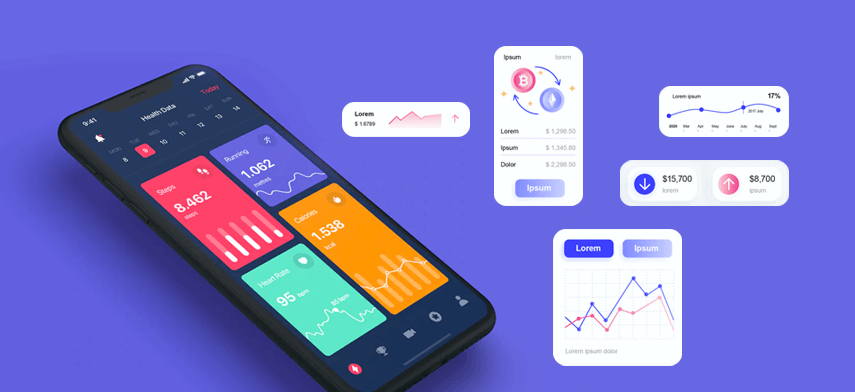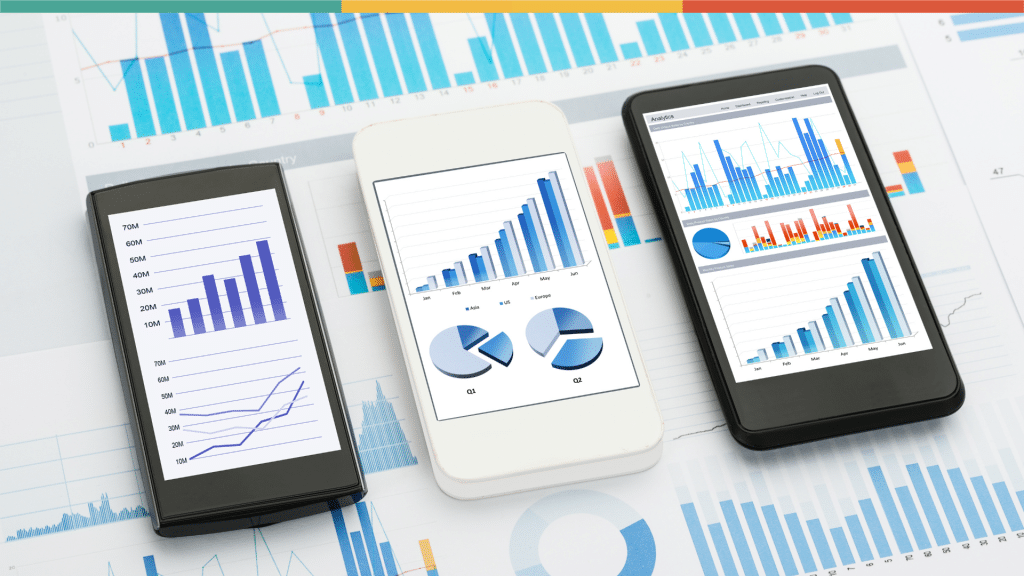Introduction
In the dynamic world of mobile applications, understanding user behavior and app performance is crucial for success. This is where mobile app analytics comes into play. By leveraging the power of app analytics, developers and marketers can gain invaluable insights into how users interact with their applications. This comprehensive guide aims to unravel the multifaceted world of analytics for apps, emphasizing the significance of measuring what truly matters.
The Importance of Mobile App Analytics
Mobile app analytics transcends beyond mere data collection. It’s a strategic approach to decode user interactions, app functionalities, and market trends. In an era where the app market is fiercely competitive, mobile analytics acts as a compass guiding towards informed decisions and targeted strategies.
1. More Than Just Data Collection
- Comprehensive Insight: App analytics is not limited to collecting data; it offers a holistic view of user behavior and app performance.
- Strategic Tool: It serves as a strategic instrument, enabling businesses to understand and interpret user interactions and app functionalities in depth.
2. Decoding User Interactions
- User Behavior Analysis: Analytics help in comprehending how users interact with the app, what features they use most, and where they face issues.
- Enhancing User Experience: This understanding is crucial in making necessary improvements and ensuring a better user experience.
3. Understanding App Functionalities
- Performance Monitoring: It allows for continuous monitoring of the app’s performance, identifying areas of strength and those needing improvement.
- Feature Optimization: Insights on app functionalities guide in optimizing and updating features to meet user needs and preferences.
4. Navigating Market Trends
- Market Insight: Analytics provide a clear view of current market trends, helping in aligning the app with user expectations and industry standards.
- Competitive Edge: Staying abreast of trends ensures the app remains competitive and relevant in a rapidly changing market.
5. Guiding Informed Decisions
- Data-Driven Decisions: The insights gained from analytics empower businesses to make informed, data-driven decisions.
- Strategy Development: These decisions are crucial in developing effective marketing strategies, feature developments, and user engagement plans.
6. Targeted Strategies for Growth
- Focused Marketing: App analytics aid in creating targeted marketing strategies that resonate with the intended audience.
- Growth and Expansion: They are instrumental in driving growth, increasing user base, and expanding market reach.
Understanding Analytics of Mobile App
Mobile app analytics tools are the cornerstone of analyzing and enhancing app performance. They offer a variety of metrics and data points, crucial for understanding user behavior and app usability.
User Engagement and Retention Analysis
At the heart of app analytics is the ability to track user engagement and retention. These metrics shed light on how users interact with the app, how often they return, and what keeps them engaged. This analysis is pivotal in refining user experience and increasing app stickiness.
Performance and Error Tracking
Another vital aspect is monitoring app performance and error occurrences. This facet of app analytics helps in identifying and rectifying issues that can hinder user experience or cause app crashes, thus ensuring a smooth and reliable app performance.

Leveraging Mobile App Analytics for Growth
The ultimate goal of analytics is to foster growth. By understanding user behavior and app performance, developers and marketers can implement strategies that resonate with their audience.
User Acquisition Strategies
One of the primary uses of app analytics is to fine-tune user acquisition strategies. By analyzing which channels bring the most engaged users, businesses can optimize their marketing efforts and budget allocation.
Personalization and User Experience
Mobile app analytics also plays a crucial role in personalizing user experience. By understanding user preferences and behaviors, apps can offer more tailored content and features, thereby enhancing user satisfaction and loyalty.
Mobile App Analytics Tools and Techniques
To effectively utilize app analytics, one must be familiar with various tools and techniques available in the market.
Choosing the Right Analytics Tool
Selecting the right analytics tools is crucial. The choice depends on various factors such as the type of app, the metrics you wish to track, and the level of detail required.
Implementing Analytics in Your App
Implementation of analytics for apps is a critical step. It involves integrating analytics SDKs into the app, setting up tracking for desired metrics, and ensuring data accuracy and privacy compliance.
Advanced Analytics Features
As app analytics evolves, advanced features are being introduced to offer deeper insights.
Cohort Analysis and Segmentation
Cohort analysis and segmentation allow for a more granular understanding of user behavior. By grouping users based on specific characteristics or behaviors, businesses can tailor their strategies more effectively.
- Purpose and Benefits:
- This approach allows for a more detailed understanding of user behavior over time, helping to identify patterns and trends that might not be visible in the overall user base.
- Customized User Grouping:
- Users are segmented based on various criteria such as acquisition date, behavior patterns, demographics, or user journey stages.
- This segmentation provides a clearer picture of how different groups interact with the app.
- Enhancing Business Strategies:
- By understanding the unique behaviors and needs of each cohort, businesses can create more personalized and effective engagement strategies, improving user retention and satisfaction.
Predictive Analytics and AI
The integration of AI and predictive analytics in mobile app analytics tools is a game-changer. It enables businesses to anticipate user needs and behaviors, offering a proactive approach to app improvement and marketing.
- Anticipating User Behavior:
- Predictive analytics uses historical data and AI algorithms to forecast future user behaviors, preferences, and potential churn risks.
- This foresight allows businesses to proactively address issues and capitalize on opportunities.
- Customized User Experience:
- AI can personalize user experiences by learning from individual user interactions and preferences.
- This personalization can lead to increased user engagement and loyalty.
- Improving App Functionality and Marketing:
- Predictive models can identify which app features are likely to be successful or suggest areas for improvement.
- Marketing efforts can be optimized by predicting which campaigns or channels are likely to yield the best results for different user segments.
- Data-Driven Decision Making:
- The combination of AI and analytics empowers businesses to make informed decisions based on comprehensive data insights.
- This approach leads to smarter strategies in app development, marketing, and overall business growth.
Challenges and Best Practices in Mobile App Analytics
While mobile app analytics offers numerous benefits, there are challenges and best practices that one must be aware of.
Data Privacy and Security
In the era of data breaches and privacy concerns, ensuring the security and privacy of user data is paramount. Adhering to regulations and implementing robust security measures is crucial.
Interpreting Data Correctly
The abundance of data can be overwhelming. Interpreting this data correctly and drawing meaningful insights is a skill that needs to be honed for effective analytics.

Conclusion
Mobile app analytics is not just about collecting data; it’s about understanding and utilizing that data to enhance user experience, improve app performance, and drive growth. In the ever-evolving landscape of mobile applications, those who master the art of mobile app analytics will undoubtedly have a competitive edge. As we embrace the potential of analytics for apps, the future looks promising for developers, marketers, and users alike. With the right tools, strategies, and insights, the possibilities are endless in the world of mobile app analytics.
What is mobile app analytics?
Mobile app analytics refers to the process of tracking and analyzing user behavior within a mobile application. It helps app developers and marketers understand how users interact with their app, identify user engagement patterns, measure key performance indicators (KPIs), and make data-driven decisions to improve the app’s performance and user experience.
What are the best mobile app analytics tools?
Here are some of the best mobile app analytics tools:
Google Analytics for Mobile Apps
Firebase Analytics
Mixpanel
Localytics
Flurry Analytics
Amplitude
Appsee
Countly
CleverTap
MoEngage
These tools can help you track user behavior, measure app performance, and analyze user engagement to optimize your mobile app strategy.
What is mobile app analyzer?
A mobile app analyzer is a tool that analyzes and evaluates various aspects of a mobile application, such as performance, usability, security, compatibility, and user experience. It helps identify issues and provides insights to optimize the app for better performance and user satisfaction.
How to do app analytics?
To perform app analytics, you need to follow these steps:
Set goals for your app analytics.
Choose an app analytics tool that suits your needs.
Implement the analytics SDK in your app.
Define the events and metrics you want to track.
Analyze user behavior and engagement.
Use data to make informed decisions and optimize your app.
Monitor and track the performance of your app over time.
Remember to regularly review and interpret the analytics data to gain valuable insights for improving your app.


